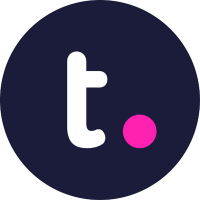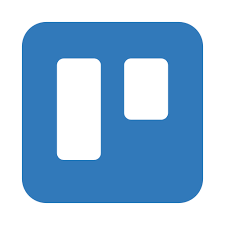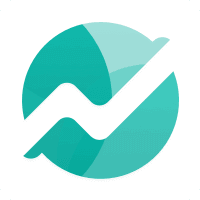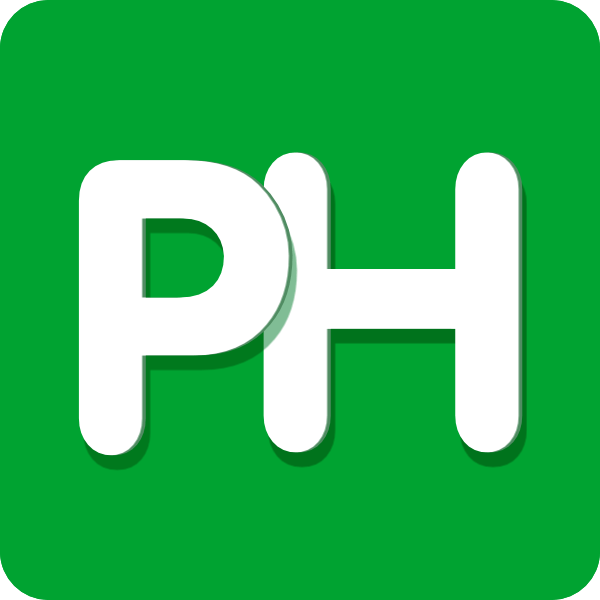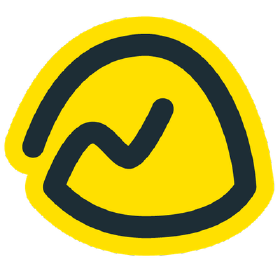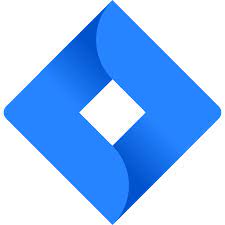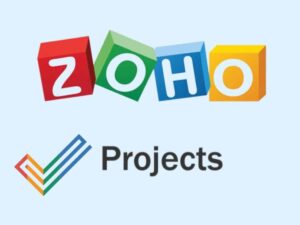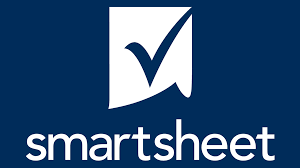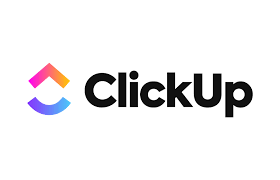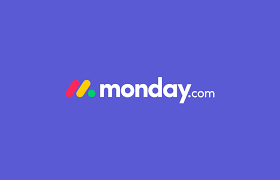Managing projects in a business of any size is no simple task. For startups, having the right project management tools can spell the difference between success and failure. In this article, we’ll look at the best project management software for startups and how to select the one you need to take your startup to the next level.
Quick View
- Teamwork: Best Overall
- Wrike: Best for Scaling Organizations
- Trello: Best for Kanban Boards
- Nifty: Best for App Integration
- Asana: Best for Teams
- Kissflow Project: Best for Simplicity
- ProofHub: Best for Flat Rates
- Basecamp: Best for Collaboration
- Jira: Best for Reporting
- Hubstaff: Best for Tracking Staff Progress
Software
Price
Task Management
Personnel Management
Collaboration
Reporting
From $0 to $22.50 per user per month with custom options
Several tools, including Kanban lists and templates
Can see employee availability and quickly assign tasks
Proprietary software that offers transparency and customizability
Profitability charts, time management, billing
Free to $24.80 per user per month, custom plans available
Customizable dashboards, workflows, request forms, and more
Prioritize projects, Gantt charts
File sharing, tasks, and reports instantly
Track projects in real-time with 360° visibility
Free to $17.50 per user per month
Customizable cards using the Kanban boards system
Gantt charts for tracking how far along people and projects are
Every single part of cards can be shared with teammates
New dashboard view offers insights into projects
Free to $25 per user per month, custom options available
Multiple views and automated tasks
Time tracking to follow workloads and billable hours
Discussions to facilitate ideas and take action
Overview and detailed management tools
Free to $30.49 per user per month
Multiple views to sort projects, assign due dates and personnel
Workload charts to show how each user is working among projects
Chat windows available within project tabs
Charts and graphs to pull in any data from any team
Free to $12 per user per month
Collaborative tools between $500 and $2000 per month
Simple, clutter-free, tailor-made interface
Attendance and project tracking tools
Private and group chat, channel posts, events
Prebuilt or custom reporting tools
Flat rate of $45 or $89 per month
Kanban and Gantt charts, calendar, file hub
Timesheets, custom roles, request forms
Discussions section to keep chat content in one place
Detailed resource and project reports in a single click
Free or a flat $99 per month
To-do lists, scheduling, priorities, Gantt charting
Automated check-in questions, time tracking, can create teams and groups
Group chat, instant messaging, message boards
No tools available
Free to $14.50 per user per month, custom options available
Kanban and scrum boards, roadmapping, automation tools
Time and budget planning
No internal integration options for other software
Agile reporting through multiple charts
Free to $10 per user per month, custom options available
Timelines, roadmaps, to-do lists, Kanban lists
Payroll, expense tracking, daily and weekly limits, scheduling, and attendance
Limited to Kanban lists
Easy, customizable report charts
Quick Verdict
Best Overall – Teamwork. Teamwork offers a range of features that help it find its place in any size business. The software makes it easy to schedule and keep tabs on teams and tasks. With several plan options, Teamwork will scale with you as your company grows.
10 Best Project Management Tools for Startups
Without further ado, let’s take a look at the 10 best project management tools for startups currently available
As the name implies, Teamwork is a project management tool your team members can rally around to get work done.
Teamwork effectively manages projects through tools such as Kanban task boards and templates with several custom fields. The number available depends on your membership level. The downside to all these project management tools is that team members can’t make changes while offline.
The software makes it easy to see what your entire team is working on at a glance. In the Workload section, you can scan how many different projects each individual is working on and quickly assign team members new tasks as needed.
As a project manager, you can gather information from ongoing projects to study things like profitability, time tracking, and billing. As you manage tasks, these tools are essential in discovering where you’re making the most impact.
Teamwork has team collaboration tools that allow team members to discuss project tasks and share feedback from one convenient location. Collaboration comes in the form of a software add-on included in Teamwork’s paid plans.
Small teams of fewer than five users can make use of Teamwork’s most basic features at no cost. As your group grows, Teamwork can scale with your business by offering more features that cost $12.50 or $22.50 per user on a monthly basis. To test things out, project managers can test Teamwork’s premium features for 30 days without cost.
Bottom Line:
With access to it all, it’s no wonder that Teamwork is one of the best project management tools out there.
- Suitable for companies of all sizes.
- Quick and easy task assignment.
- Project management templates.
- Intuitive and flexible.
- Can’t make changes in offline mode.
Wrike offers stellar project management software for startups and small businesses that grow with your team.
Startup companies can take advantage of Wrike’s free plan that opens the door for unlimited users to make use of limited resources. It’s easy to jump to higher-tier plans at $9.80 or $24.80 per user per month to access the best project management tools the platform has to offer.
Each project management tool has a layer of customization that you can use to fine-tune your team’s specific needs. Once dialed in, it’s possible to view multiple tasks with Gantt charts or a Kanban task board. With so many options, it can be overwhelming at first to overcome the learning curve.
The software makes streamlining team collaboration a breeze by sharing files and tasks in one central location. While team members can chat within the same project, there are no other ways to communicate.
Wrike stands out with its reporting, as project managers can follow project progress in real-time. Detailed reports show project performance and team productivity that help facilitate effective project management.
Bottom Line:
Wrike scales with enterprise companies to deliver the project management software needed at any stage of the game. Read the complete Wrike review for in-depth analysis.
- Task tabs allow for team discussion.
- Suitable for all business sizes.
- Quick file sharing.
- Detailed reporting.
- Steeper learning curve.
- Limited chat options.
Trello’s project management system revolves around cards representing task progress that can be grouped into boards for different projects. Users can communicate on each card while providing updates and setting task status. This card approach makes it a breeze to manage tasks individually.
The fact that you can have unlimited cards even on the free plan makes Trello one of the best project management software for startups or small businesses. If you need more task boards or to access Trello’s new views, you’ll need to shell out $6 or $12.50 per user per month.
Speaking of views, Trello now offers the means to monitor progress via timelines, dashboards, and even a calendar to check current and upcoming tasks. The timeline view helps with time tracking, and dashboards are great for reporting.
If you’re going to use Trello, you’d better be a fan of the card system. It’s the only way to view tasks in this particular project management tool. Although tasks can be grouped into different boards, Trello doesn’t allow you or your team members to create subtasks.
At the premium level, the software allows the use of its Butler. Feed Butler your recurring tasks, and it will automate the processes for you. There’s no knowledge of coding required to make use of this service.
Bottom Line:
Trello is one of the best visual PM software options available with an easy to create and update card system. However, this management software does have limitations that businesses can outgrow.
- Simple interface.
- Excellent Kanban tools.
- Scales well with company growth.
- Can automate tasks.
- Limited ways to view projects.
- Can’t create subtasks.
Nifty’s neat project management software package offers its suite of core features to an unlimited number of team members for free. As sweet as that sounds, you’re limited to just 100 megabytes of file storage and just two projects.
To tap into tools such as time tracking, automation, and unlimited projects, you’ll need to upgrade. Successive tier plans come at $9, $16, or $25 per user every month.
One of Nifty’s star features is the ability to integrate with your other favorite apps such as Slack, Google Calendar, and the Microsoft Suite of products. You may even be able to import tasks from other startup project management software. What Nifty can’t do, one of these other applications should be able to fill in the gaps.
As Nifty is one of the newest project management tools for startups, it still lacks on the feature front. While it offers time tracking, there’s no way for a project manager to look deeper into how different team members are doing without going task by task.
There are also limitations on how much you can customize the projects and the dashboard. The project management tool does have an excellent discussion section for team communication and collaboration.
Bottom Line:
Although new, Nifty already has some solid task and team management tools. You’ll just need to look past the lack of flexibility to make use of these features.
- Direct messaging on projects.
- Multiple project view options.
- Pricing for businesses of all sizes.
- Seamlessly integrates with other popular apps.
- Still new, lacks features.
Asana is one of the best project management software for startups, with several features available even at the free level. For startup companies of 15 people or less, you’ll get basic reporting, three views, and unlimited projects, tasks, and activity logs.
The most prominent benefits for upgrading to either the Premium plan at $13.49 or the Business plan at $30.49 are automated workflows, advanced reporting, scaled security, and priority support. These benefits make Asana appealing to software development teams.
You can streamline processes and manage multiple projects through up to six viewing options. Each task has a chat option that team members can use to converse. The platform also allows flagging urgent tasks that need immediate attention.
Asana may be a miss for enterprises with just a handful more than 15 employees, as prices escalate quickly. Being able to customize the calendar and view may soften the burn.
Similarly, Asana gives project managers the chance to generate charts and graphs from any team or task to aid in project planning. For on-the-go users, Asana features a convenient mobile app.
Bottom Line:
Asana makes working with teams a snap with clear resource allocation, unlimited essential tools, and streamline communication.
- Can assign due dates and priorities to tasks.
- Create custom calendars and views.
- Chat option within each task.
- Uses Kanban view.
- The price may be high for small teams.
Kissflow Project enters the mix with simple project management software for startups that’s a joy to look at and surprisingly clutter-free. Newer companies may eat this up, but mid-sized organizations may find the interface a little too basic.
The software platform starts out free to unlimited users while still offering all but the most advanced features. A paid plan to get endless custom views, limitless storage, and advanced reporting will run $5 per user per month. The extra security from the advanced plan will set you back $12 per user monthly.
Besides Project, Kissflow has other products such as Digital Workplace, Procurement Cloud, and Community tools. These integrate seamlessly with Project but come with a significant additional price tag.
In particular, the team collaboration software is some of the best out there, with private and group chat, channel posting, and events. Unfortunately, you’re looking at an extra $500 minimum per month to use it.
The service was known for an abundance of bugs in the past, but many of these are now under control. That won’t stop the occasional error message from appearing, though.
Even so, there are plenty of prebuilt tools for analyzing project timelines, tracking team attendance, and viewing tasks.
Bottom Line:
Kissflow Project’s simple interface saves time and energy by making the data and information you need easy to locate.
- Prebuilt tools and automated tasks.
- Clutter-free interface.
- On the cheaper side.
- Kissflow has several other products besides Project.
- Collaboration tools cost extra.
- Occasional bugs.
ProofHub doesn’t have a free option for startups but does offer a relatively uncommon flat rate for its services. You can get access to core features for $50 per month, but ProofHub’s complete package runs $99 per month no matter how many users work with you.
A flat-rate option can speak to companies with a more extensive staff. As most other project management software companies charge upwards of $10 per user for advanced tools, even a business of 10 users can save some money here.
Depending on your needs, just the core features of the project management tool may suffice. The core package includes time tracking, discussion tools for collaboration, project templates, a calendar, announcements, and more. While announcements are a way to share achievements, they can quickly become overwhelming if used too often.
Some of ProofHub’s top features revolve around file sharing and proofing. Files are easy to transfer and remain in a central place for everyone to view. As the team reviews documents, ProofHub adds file versions to track updates.
Custom roles allow the project manager to create an organizational workflow, limiting what users can access. Tasks are visible in either Gantt or Kanban format depending on each user’s preference.
Bottom Line:
ProofHub shares its features for one flat rate per month while simplifying tasks and working off uploaded documents.
- Unlimited projects and users for one flat rate.
- Project proofing.
- Easy file transfer and storage.
- Custom roles.
- Discussions section.
- Notifications can be overwhelming.
- Limited customization options.
Basecamp prides itself on being a one-stop-shop for all of the tools your company needs to succeed.
For $99 per month, Basecamp’s entire portfolio of features is made available to you and your team. This one flat rate allows the creation of unlimited projects without placing a limit on the number of users you can have. The rate doesn’t increase no matter how many people you enlist, making Basecamp affordable for large and small businesses alike.
There’s also a free but minimal free version available. You can access basic features with up to 20 users, but all advanced tools are blocked.
The software itself really excels with collaborative tools. Within the platform’s umbrella, your team can chat in real-time privately, in groups, or on a message board.
With the ability to create an unlimited number of projects, you can structure or organize tasks any way you see fit. To-do lists, Gantt charting, and priorities make it easy to see which items need to be addressed first. The downside here is that Basecamp doesn’t allow the creation of task dependencies.
The software doesn’t offer any charts for reporting but provides the means to group your crew into specific groups and teams. With automated check-in questions, you can get updates straight from the source.
Bottom Line:
Basecamp strives to incorporate everything you’ll need to manage your business at one flat monthly price. For a more comprehensive analysis of Basecamp, read the ultimate Basecamp review.
- To-do lists.
- Task history.
- Flat rate per month.
- Can assign project priority.
- No reporting tools.
- No customization options.
Jira sets the bar high when it comes to staying on top of timelines and tracking progress. The project management software lets you create a seemingly endless number of reports and charts to ensure goals are being met. Best of all, you can bring all these reporting tools together in a single view with Jira’s dashboard tool.
All this reporting comes at the cost of collaborative tools. Jira lets you assign your staff to different projects using either Kanban or scrum boards, but there’s no way for those users to talk to each other. There are options to integrate with other programs, however.
There’s a free plan available for groups of 10 users or less that comes with basic management tools and limited storage. Jira’s Standard plan at $7.50 per user per month and Premium plan at $14.50 per user per month allow up to 20,000 users and get cheaper with the more team members you have. The number of features grows as you shell out the dough for the higher-tier plans.
In addition to reporting, Jira has an abundance of roadmapping and automation tools to make project management as stress-free and efficient as possible. You don’t need to be a programmer to excel at these features, as everything is handled through a drag and drop method.
Bottom Line:
Jira’s reporting tools are second to none and marry well with roadmapping features to save you time.
- Roadmaps for project planning.
- Bug and issue tracker.
- Powerful agile reporting.
- Integrates with many third-party apps.
- No native collaboration tools.
- The interface can become cluttered.
Hubstaff’s base software is built around time tracking, payroll, and reporting for your team. The system logs hours worked based on activity levels and takes occasional screenshots of employees’ screens.
All this data is viewable through Hubstaff’s detailed and actionable time reports. It’s possible to track individual users or follow the progress of specific tasks your team is assigned to.
Businesses likely won’t benefit from the free option, which only allows for one user. Other plans start at $7 or $10 per user per month, depending on the features you need.
Hubstaff Tasks introduces Kanban lists, roadmaps, automated workflows, and more to make project management that much more straightforward. You’ll even be able to customize the dashboard to see what’s most important to you.
Bottom Line:
Hubstaff has many impressive features split over multiple platforms, adding significantly to cost.
- Impressive resource management tools.
- Personnel scheduling.
- Screen monitoring.
- Customizable dashboard.
- No live chatting.
- Resource and task management each have monthly costs.
How To Choose Project Management Software for a Startup
Here are the six most important things to consider when choosing a startup project management software:
- Scheduling and task management tools
- Monitoring
- User interface
- Cost
- Integrations
- Resource management
Scheduling and Task Management Tools
Each project management software out there brings its own set of tools to the table. It’s important to factor in how your project management methodologies and business processes match what’s available.
Find something that’s large enough for your team now and in the future while ensuring the tools for both project scheduling and task management live up to your needs.
Monitoring
How much of your team’s progress do you need to see? Some platforms dive deeper into reporting than others with more complex charts and graphs. If preset reporting tools aren’t enough, consider project management software that allows customizability.
User Interface
All the information in the world won’t mean a thing if you can’t make sense of it all. Some project management software for startups provide simple, straightforward, intuitive interfaces that are easy to understand and navigate through. Others offer a more comprehensive approach for those needing to see a lot of data in short order.
Cost
Cost is always a heavy factor when considering the software you choose. Many platforms offer free-to-start plans but often limit available features. No matter where you start, ensure that the free software can scale with your business, both in terms of functionality and price.
Integrations
If you’ve been in business for any length of time, you already have tools you enjoy using and are comfortable with. If you’re not aiming to replace those programs, it’s worth picking out a project management system that will integrate seamlessly with what you already use.
Resource Management
Tracking tasks is only half the battle. It’s just as important to be able to see what each team member is working on to ensure they’re sufficiently loaded with work and have the tools they need to succeed. The best project management software knows this and will allow you to effectively lead your team.
Frequently Asked Questions (FAQs) for Best PM Software for Startups
Below we tackle some of the top questions about project management software.
Conclusion: Best Project Management Software for Startups
Having the best project management tools at your fingertips can boost your company’s productivity while saving you time in one fell swoop.
Before making a purchase, ensure the software you’re considering meets your needs both now and in the future. We landed on Teamwork as the best project management software available with a large number of features and collaborative tools.
 Sections of this topic
Sections of this topic

